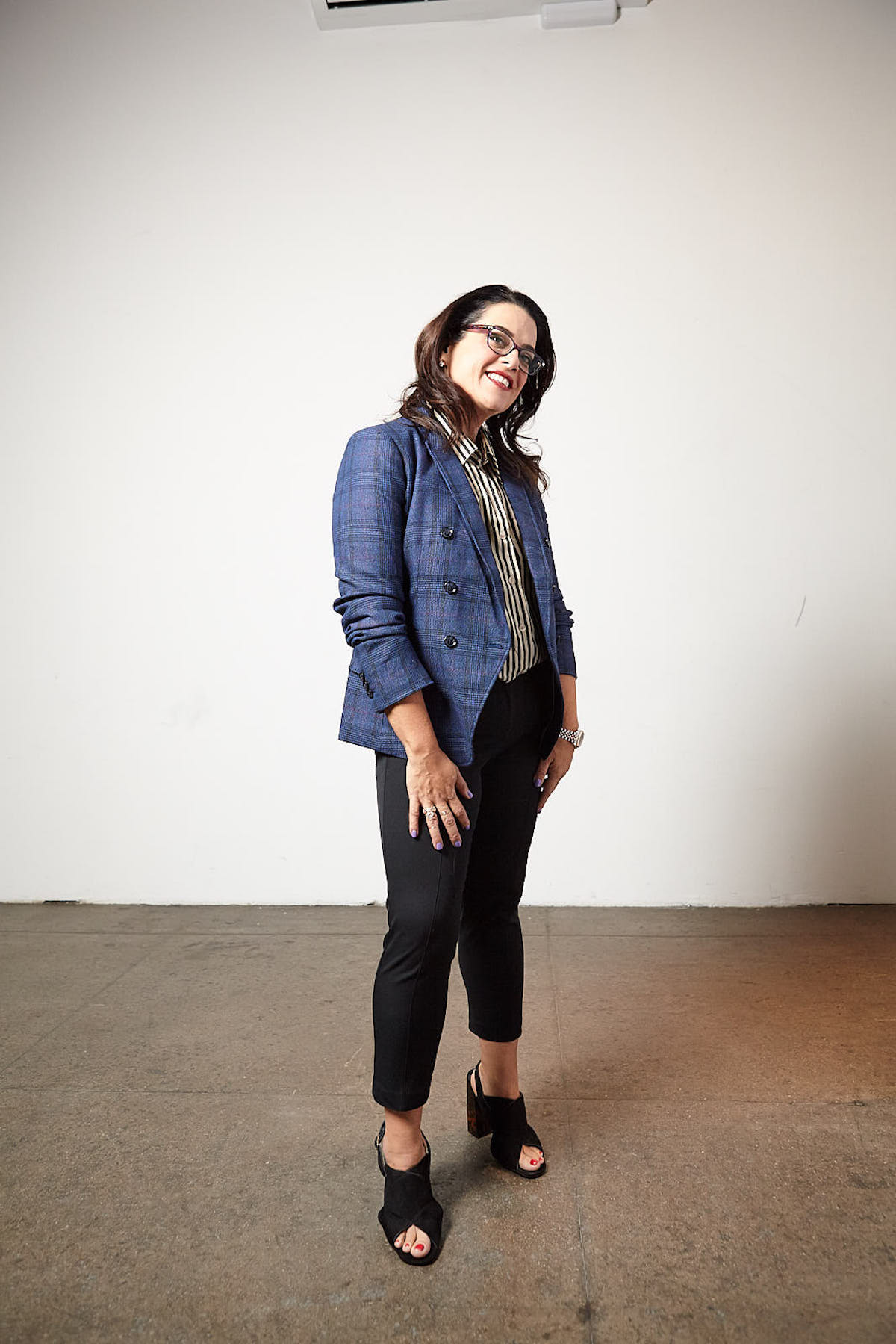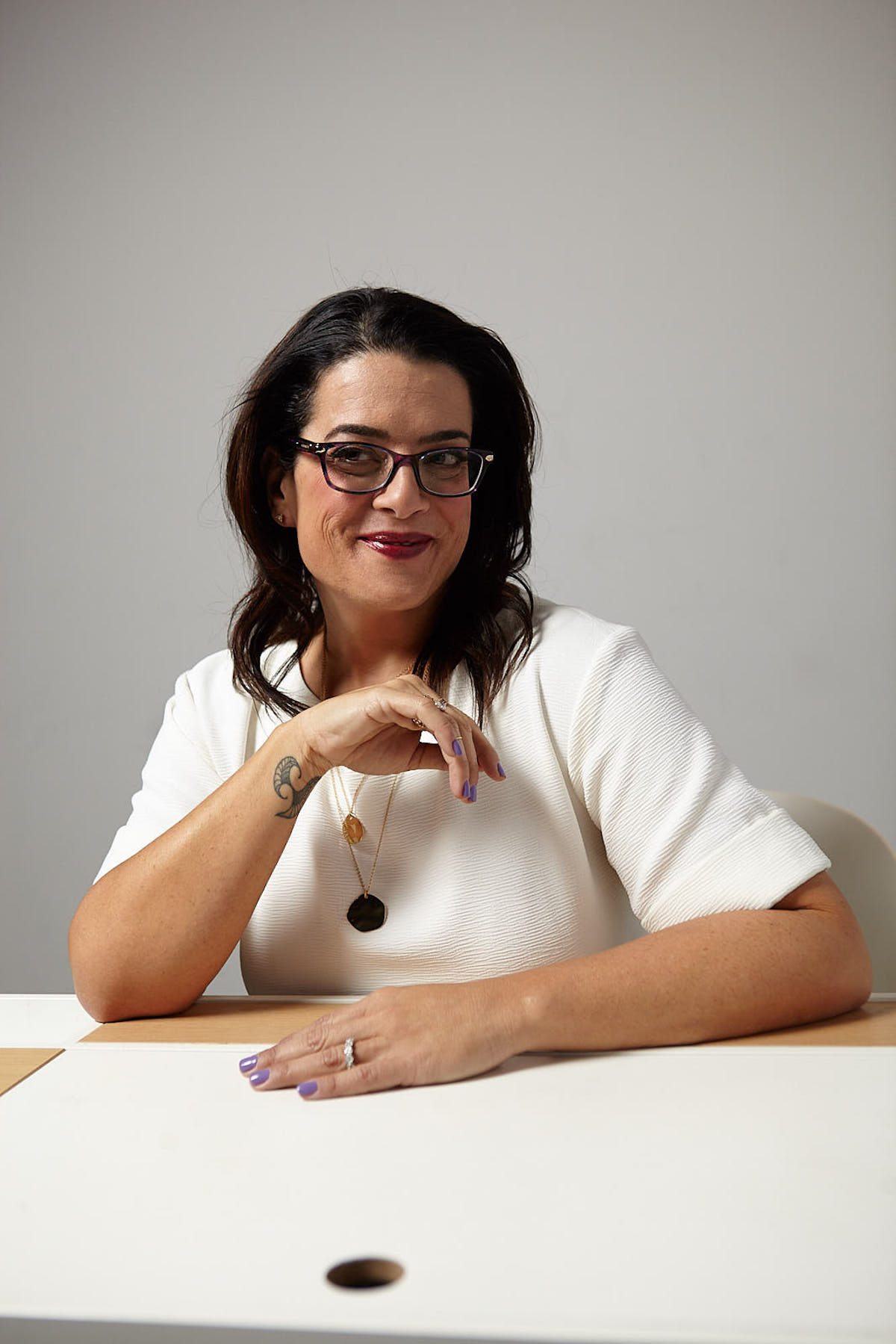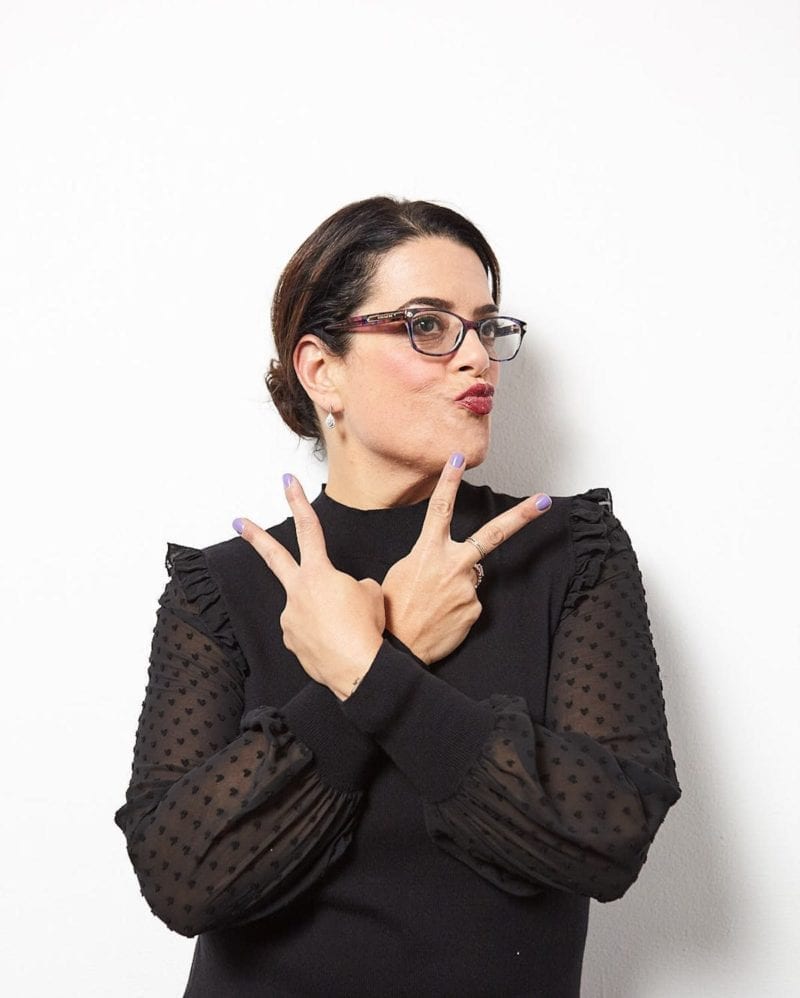Cultural change-maker, author of two best-selling books, host of the “Talk to Jess” podcast, recipient of the National Association of Women Business Owners “Innovator of the Year” Award in 2016 and Dove’s Global Self-Esteem Ambassador, Jess Weiner is a woman who Darling is honored to call friend and mentor.
You might remember our feature of her work, specifically with the Barbie “diversification” and Dove campaigns, back in our summer 2016 Issue, but since then she has only picked up stamina, conviction and clarity.
Jess is more than just a founder and CEO — she makes an incredible listening ear, one which has defined the thoughtful and precise solutions that she brings into the corporate cultures that she consults for. That’s why we’ve chosen to partner with her to launch our new series in print titled, “Dear Jess.”
In this series, you our readers will be asked to send in questions surrounding career, womanhood, self-esteem and culture-making for Jess to select and answer in upcoming issues. In the meantime, we thought we should reacquaint you — our community — with the woman herself.

Teresa Miller Archer: So we last touched base in print in summer 2016! Tell us what has happened in your world since then that you’re most excited about.
Jess Weiner: I’m so excited that systems are crumbling. The level of conversation that we are having around empowerment in our personal, political and business lives and how we’re deepening that conversation to talk about inclusivity, responsibility for others and humanity in a time where the world doesn’t feel very kind. I get excited about that because it shows me that we are on a path to progress.
What I’ve found is that self-discovery is messy and it doesn’t feel great for everybody and it’s scary, but I also feel like the conversations I’ve had with women and the businesses I work with and the communities that I serve; everybody is waking up to the idea that we have to treat ourselves and others differently. I get very excited about that.
TMA: The world not seeming so kind, do you think that’s more of a revelation of where we’re at or that there has been a shift?
JW: I think there’s been a shift. Listen, we have an incredibly crazy news cycle right now, every day feels like ten years. There are horrible things happening with domestic and international crises. What I do as a strategist is to try to find the themes in culture. The theme I’m seeing resonate right now is how our views around empowerment are bringing us together to talk about equality and highlighting where we’re still not all equal and how we can change that.
Everybody is waking up to the idea that we have to treat ourselves and others differently. I get very excited about that.
TMA: When you enter a sphere or culture, what are the first questions you ask in terms of assessment of the health of that company?
JW: I’m really passionate about what a business’ “North Star” is — and this is also a great question for individuals and brands.
I do an exercise on Vision, Values and Mission to ensure that these are all aligned. For example, for vision I ask, “What gets you out of bed in the morning? What is your 30K foot view of your life? What do you want to create for yourself?”
At different ages and stages this will be very different for people, and for businesses it works the same way. A brand’s vision or North Star might not be the same ten years down the road. I work with a lot of big Fortune 500 Companies and I’m always interested in asking, “What do you organize your values around? What’s the passion point for employees to focus on and do they know even what the company stands for?”
You’d be surprised, actually, how many companies don’t know what their North Star is and how many people don’t know either. Walking around, we all think we’re heading towards these goals but we don’t stop to really ask about the connection. To ask “why?”
TMA: How then do you describe your North Star? What gets you out of bed in the morning?
JW: My North Star is about helping people create the personal and systemic change that they want to see in their life. So I’m very passionate about helping people connect to their purpose and making sure that they’ve got the tools to enact their dreams.
The same is true for a business. Say I go into one and they say, “We want to empower women.” I’ll always ask them, “Why?” What I’ll usually get out that conversation is an understanding of what the leadership sees and doesn’t see about women. It’s the same question when I ask women who want to feel more empowered. I”ll ask them why.
When we unpack what we think culture has told us is important or what we think is going to make us happy, we go on this wonderful journey to figure out what we really want. Not what our parents, friends or media have told us we want but what really drives us. When you can get clear on your “why” you can reorganize your life to be so much more on purpose. There’s always a place we’re striving to get to and I find that it’s really more internal than external.

TMA: So you’re going into corporate structures asking them really deep, almost ethereal questions.
JW: That’s right, and you know why? The people running those organizations are human beings. My teaching doesn’t change whether I’m talking to you or a CEO of a biotech company. If I know that they have some clarity on their intention we can talk about corporate culture, a marketing campaign or a consumer trend, but I like to do it from a level of humanity.
I think, right now, our culture is such that we want more from the brands that we engage with. We want them to represent or reflect the values that we all share, and I think the people inside those big businesses need to look inside and find a way to connect. We can smell a mile away a plastic marketing campaign. That’s why I’ve worked for over 20 years on helping to create better representation for women and girls in media. One of the biggest shared values we have is wanting to be seen.
We can smell a mile away a plastic marketing campaign. That’s why I’ve worked for over 20 years on helping to create better representation for women and girls in media.
TMA: It’s true, sometimes you see a paid partnership and you as a consumer feel like, “That’s ok, that makes sense,” and other times it feels so misaligned and strange I don’t believe they endorse each other.
JW: Yeah, because we are smart and we have an assumption about the intentions of a business.
TMA: Women today are under so much scrutiny; let’s zone in on American women. What is one thought, belief or concept that — if you could — you could convince all women of?
JW: So, the first thought that came to me was, “Stop asking for permission.” When I see women, myself included, it feels like we’re waiting for permission to be great, to take up space or to feel beautiful or powerful or to exert our creativity.
It can be societal permission, family permission or permission from a partner. I feel we must all realize that the time to be great is now and that we don’t need to wait for anybody to tell us that we can move. If this would happen, we would see a thrust of female leadership the likes of which we haven’t seen before.
There’s a saying to the tune of, “Women will have 80% of the qualifications for a job and feel underprepared. Men can have 20% and feel like they can go in and kill it.” I think that is very true; women doubt their abilities even when they have strong competencies. We still doubt the permission to take up space in the boardroom, in the classroom. If we can peel that belief away and help women believe they are capable exactly as they are, I think we’d see more women in public office, as an example.
Can I back up and also add something? I’m aware that though changing this belief would make a difference, there still is a larger cultural system set up to where even the most confident woman in the world can’t penetrate through some areas. I want to acknowledge that it’s not just women’s lack of confidence holding us back, but the question is still a great one. That would be a freeing belief for many women.
I feel we must all realize that the time to be great is now and that we don’t need to wait for anybody to tell us that we can move.
TMA: That’s interesting because I think a lot of times I hold myself back from surging out of a fear of isolation; not just from men but from women also. I’m afraid of a competitive scenario where if I excel too much, I’ll experience female rejection.
JW: Yes, but you haven’t been given — we haven’t been given — enough examples of women who are excelling in their career and aren’t negatively competitive with each other. It’s an old trope we have in media – that there isn’t enough to go around for women. We’ve been fed the lie that there isn’t room for everyone, where in truth we can make space for each other.
Think about the way the media feeds this fear. Just this week there are headlines surrounding Megan Markle and Princess Kate, “Will they be best friends or frenemies?” And I thought, “That is such an old trope and narrative about women competing that needs to get retired.
I believe whole-heartedly there is enough to go around; I subscribe to abundance theory. We can’t be afraid of soaring too much for fear we will be punished and we all need to actively reject that notion and rewrite this story.
Can you see why we’re honored to start having Jess answer your questions in print? Be sure to follow us on social @darling to stay updated with all the details.
Images via Jason Barbagelott












3 comments
Yes, yes, yes! Thank you, Jess! I am 100% onboard with you – businesses need to start operating from a level of humanity and us darlings need to stop waiting for permission to share our light with the world! Thank you for the inspiration!
Agree! Thanks for the support!
I’m SO excited for this! Thanks for the kind words Charmaine — and I look forward to answering everyone’s questions! xo Jess